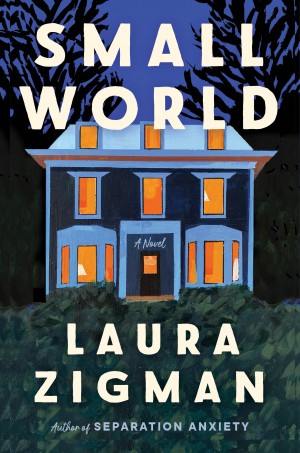If Emile Zola had written about twenty-first century Sullivan County, New York, instead of nineteenth-century Paris, his exploration of character might have resembled Sara Lippmann’s in Lech. Set against a background of financial insecurity, drug abuse, and emotional desperation, the novel follows Ira Lecher, the aging son of Holocaust survivors. His name alludes to the biblical commandment “lech lecha,” in which God instructs Abram/Abraham to go forth on his journey toward a new land. Ira does not go forth so much as back-and-forth, from Manhattan to his summer home upstate, and between a series of flawed relationships. His life intersects with those of other residents, both Jewish and non-Jewish, and they all struggle with the precarious balance between survival and loss.
The characters in the novel are incredibly vivid. Noreen, a middle-aged woman with a flexible understanding of morality, steals money and credit cards while practicing her profession of brokering deals for property. Noreen’s daughter Paige has a substance-abuse problem, and plans to flee Sullivan County for the promised land of Florida. Beth, the young mother of a physically fragile four-year-old son, has fled Manhattan and a husband who is “normal to the point of strange.” Her chaotic and self-destructive relationships distance her from the rigidly defined life of the Orthodox women around her, yet she is nevertheless fascinated by the sense of belonging she observes within their closed circle. Even the New Jersey cemetery where Ira visits his parents’ graves serves as a kind of character, a “Vegas-like strip of morbidity off the Palisades.” The places that people call home eventually define them, in spite of their attempts to reorient the directions their lives take.
At first, the Hasidic community that Lippmann represents appears to be almost completely isolated from the secular, but she reveals this to be a false dichotomy. One of the most compelling characters is Tzvi, whose mother was killed in a mysterious murder. Tzvi maintains an ambivalent connection to Orthodoxy while providing illegal substances to his fellow Hasidim — a job that requires him to interact with non-Jews as well. Taking advantage of human vulnerability, he suffers from the same constraints as everyone else, and hopes to find an exit. The barriers within the Jewish world, it seems, are just as permeable as those outside.
Lippmann’s characters are tragically flawed, caught in a world of dehumanizing parameters. Through skillful pacing and sharp language, her work grants some dignity to their haphazard attempts at change.
Emily Schneider writes about literature, feminism, and culture for Tablet, The Forward, The Horn Book, and other publications, and writes about children’s books on her blog. She has a Ph.D. in Romance Languages and Literatures.





